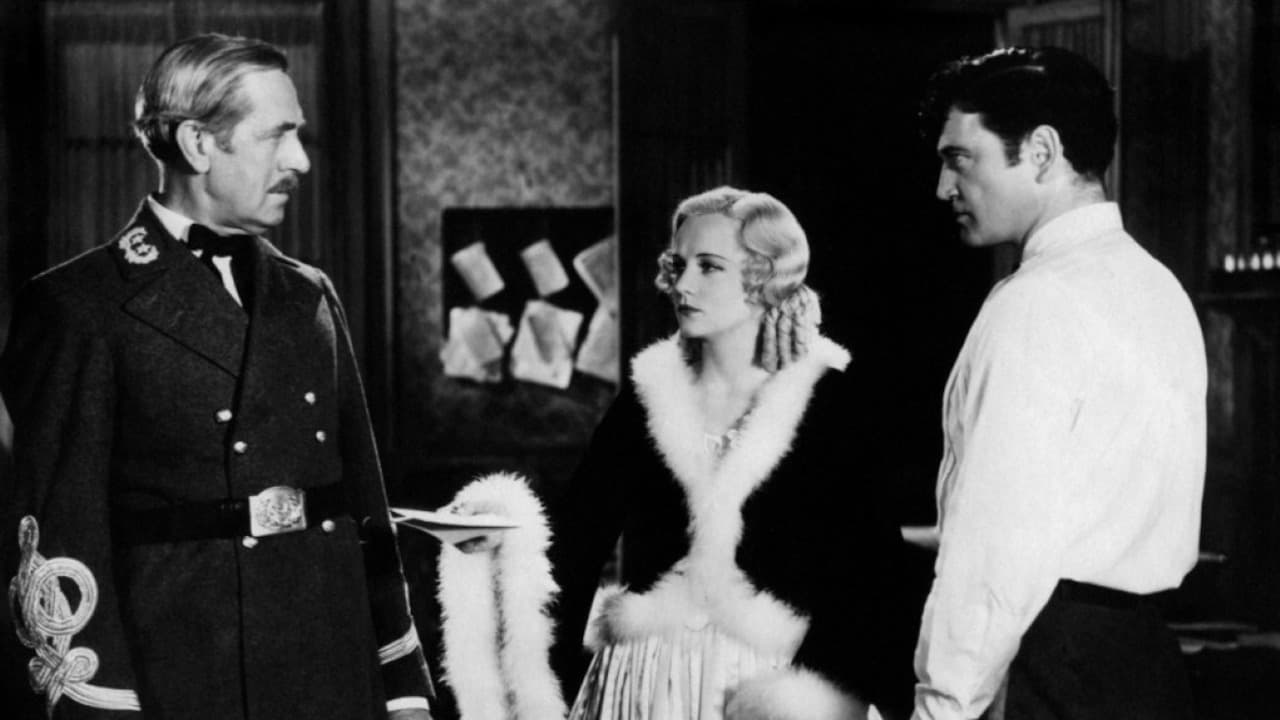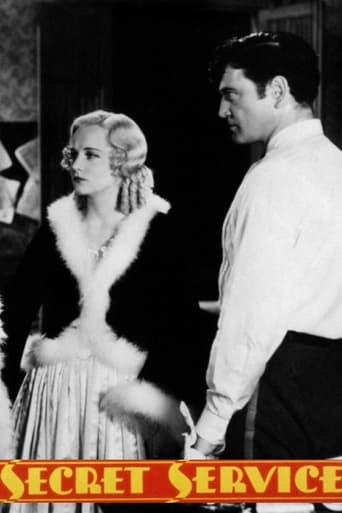



Wonderful character development!
Too much of everything
It was OK. I don't see why everyone loves it so much. It wasn't very smart or deep or well-directed.
View MoreOne of the film's great tricks is that, for a time, you think it will go down a rabbit hole of unrealistic glorification.
View MoreThere were a lot of films made during the 30s and 40s about spies during the US Civil War--though most featured Confederate spies. In "Secret Service", it's about Union spies instead. Two brothers are sent behind enemy lines to prepare the way for an attack on Richmond. The Captain (Richard Dix) is to pose as a Confederate and infiltrate the telegraph office so that he can send false orders to the troops. However, two things happened that he didn't count on--he gets shot on the way there and when he's rehabilitated, he falls in love with the young lady ministering to him. But, there is a dogged Confederate counter-spy who is always at his heels--suspecting him of being a Union infiltrator.The story is relatively routine but is also handled well. There is a nice feeling of suspense and the film does take a few unexpected turns. Because of this, it's a agreeable little film and well worth your time.
View MoreThis creaky old espionage flick is based on a play by William Gillette, who also wrote the popular Sherlock Holmes play. Richard Dix is suitably stoic in the lead role as the Union spy masquerading as a Confederate artillery officer from Texas. The movie is surprisingly gritty for the time. An innocent black man is hanged for spying and Dix's character's brother shoots himself to maintain Dix's cover. The racial stereotypes are broad and offensive, and the phony southern accents are thick enough to cut with a knife. Gavin Gordon, as the ruthless confederate spymaster, steals the show. William Gillette isn't Ian Fleming and Richard Dix isn't Sean Connery. This movie would be of interest primarily to those interested in William Gillette or to the fans of Richard Dix.
View MoreThis Civil War spy drama is based on a stage play, and it shows. Director J. Walter Ruben eventually turned into a competent filmmaker, but at this early stage of his career he was apparently enamored of the "bolt the camera to the floor and never move it" school of directing, as this is an extremely static and stagy film. It gets a bit more mobile during the few outdoor shots, but the interior scenes must be why the term "photographed stage play" was invented: people stand around in one position, seldom move and recite their dialogue pretty much by rote. Leading man Richard Dix tries to inject some life into the dull proceedings, but the insipid dialogue, wooden supporting performances and leaden direction doom his efforts to failure.
View MoreImportant only as a record of a real turn of the century barnstormer, a theatrical chestnut concocted by William Gillette, the man who brought Sherlock Holmes to the stage. A compact civil war drama that can be played in front of a bare minimum of sets, its story twists and turns in on itself basically getting down to the dilemma of a Union spy-duty or love. Though he is exposed nearly from the beginning the story oscillates between a will he or won't he conundrum which fills out the running time. Two gruesome deaths seem to effect the main protagonists not at all. Still an authentic glimpse of what the American public considered fine entertainment and serious theatre from a different time. As hokey as the tale seems today it was reprised in 1977 by PBS as a vehicle for Meryl Streep and John Lithgow ?!!. As far as the Civil war goes it has not a shred of authenticity in its bones. Best performance is by Florence Lake, in blackface, as a slave.Previously filmed by Famous Player Lasky in 1919, this hammy play was revived no doubt because it was something from new RKO studio head David Selzick's childhood.
View More